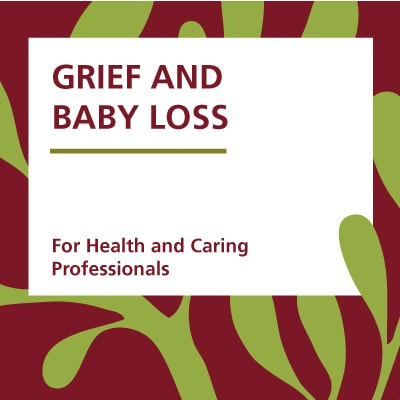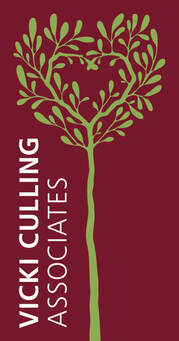Some details to help you work out if this module is for you -
- The module takes four weeks (but there's always the opportunity to request more time if life gets busy)
- A new module starts at the beginning of each month, so you can work out the timing that suits you best
- The cost is $173.91 + GST/tax of $26.09, so a total of $200.00 NZD
- If your employer is paying and you'd rather an invoice is sent directly to them, please just email with their details and I can send an invoice. Once it;s paid, I will enrol you on the module.
- If you have any questions at all, please don't hesitate to either ring Vicki on +64 021 776436 or email on [email protected]
.
COURSE OUTLINE:
Grief Theory: A Framework for Understanding Grief
In this first section, we look at the notion of theory and unpack it in order that it is understandable and helpful to us. We cover traditional and contemporary grief theories, and identify the differences in their approaches, which helps explain some of the tensions within families due to different generational beliefs as to how we should be grieving. We conclude with a discussion on how the knowledge of grief theory might be helpful in the work you do with families who have experienced the death of a baby or infant.
Grief and Baby Loss
We explore grief that is particular to baby loss in this section. International experts, such as Sherokee Ilse, share their expertise on grief in relation to baby and infant loss. We reflect on how we learn about grief in our upbringing and the ‘rules’ that we unconsciously apply to grief. We discuss specific responses to baby loss and the impact they have on bereaved parents and families, before considering empathy, sympathy and compassion. The concept of closure is considered, and we finish the section with a focus on anticipatory grief, in particular, families who know their baby will die and are planning for a birth and a death.
Approaches to Death & Grieving
This section encompasses approaches to grief that are not first world, Western and part of the dominant discourse in our country. We particularly look at an Aotearoa New Zealand demographic and consider our indigenous population, discussing a Māori approach to death and grieving. We then look at Pasifika approaches and then discuss many different cultural approaches to death and dying.
Gender and Grief
In this section, we start by asking of men and women grieve differently. While we then move discussing styles of grieving and present this concept as a move away from gendered grief, this section still considers men’s grief as fathers are so often overlooked in the area of baby loss. We also talk about your own grief and discuss what we need to look out for and how we might manage our own grief reactions whilst working with parents and families who are experiencing such tragedy and sadness.
Wrapping It All Up
We finish the module with some discussion on self-care and practices to keep oneself healthy and safe in this work. Links and downloads of resources are provided as well.
At the conclusion of each section, participants are asked to reflect on what has been learned as a means of ensuring that the content has been covered. Participants receive a certificate of completion and feedback on responses and questions as part of the module fee.
The module runs for four weeks with a certificate on completion.
Check out the What Should I Say and Not Say? module:
COURSE OUTLINE:
Grief Theory: A Framework for Understanding Grief
In this first section, we look at the notion of theory and unpack it in order that it is understandable and helpful to us. We cover traditional and contemporary grief theories, and identify the differences in their approaches, which helps explain some of the tensions within families due to different generational beliefs as to how we should be grieving. We conclude with a discussion on how the knowledge of grief theory might be helpful in the work you do with families who have experienced the death of a baby or infant.
Grief and Baby Loss
We explore grief that is particular to baby loss in this section. International experts, such as Sherokee Ilse, share their expertise on grief in relation to baby and infant loss. We reflect on how we learn about grief in our upbringing and the ‘rules’ that we unconsciously apply to grief. We discuss specific responses to baby loss and the impact they have on bereaved parents and families, before considering empathy, sympathy and compassion. The concept of closure is considered, and we finish the section with a focus on anticipatory grief, in particular, families who know their baby will die and are planning for a birth and a death.
Approaches to Death & Grieving
This section encompasses approaches to grief that are not first world, Western and part of the dominant discourse in our country. We particularly look at an Aotearoa New Zealand demographic and consider our indigenous population, discussing a Māori approach to death and grieving. We then look at Pasifika approaches and then discuss many different cultural approaches to death and dying.
Gender and Grief
In this section, we start by asking of men and women grieve differently. While we then move discussing styles of grieving and present this concept as a move away from gendered grief, this section still considers men’s grief as fathers are so often overlooked in the area of baby loss. We also talk about your own grief and discuss what we need to look out for and how we might manage our own grief reactions whilst working with parents and families who are experiencing such tragedy and sadness.
Wrapping It All Up
We finish the module with some discussion on self-care and practices to keep oneself healthy and safe in this work. Links and downloads of resources are provided as well.
At the conclusion of each section, participants are asked to reflect on what has been learned as a means of ensuring that the content has been covered. Participants receive a certificate of completion and feedback on responses and questions as part of the module fee.
The module runs for four weeks with a certificate on completion.
Check out the What Should I Say and Not Say? module:

